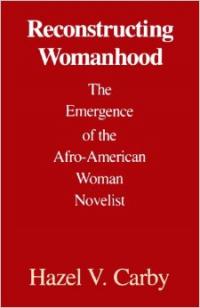INTRODUCTION: MEMORY, VIOLENCE, AND HISTORICITY
The Initiative on Race, Gender and Globalization at Yale (IRGG) was established at the beginning of the academic year 2004- 2005 with the support of the Office of the Provost. The primary goals of the IRGG are to internationalize the undergraduate and graduate curricula and to open scholarly spaces for intellectual and artistic exchange across national borders. The IRGG has achieved these goals by organizing colloquia and conferences; inviting scholars and creative artists from a range of international and disciplinary backgrounds; supporting graduate research; and by creating collaborative links with departments and programs such as African American Studies, American Studies, English, Environmental Studies, Latin American Studies, Music, Women’s, Gender, and Sexuality Studies, and History.
The themes which underscored this year’s IRGG events were “Memory, Violence, and Historicity.” These themes enabled us to address issues concerning historical violence, sexual slavery, visual culture, the corporatization of ethnicity, among other salient topics.

JAMES WALVIN
The IRGG kicked off the 07-08 academic year by hosting Professor James Walvin, from the Center for Eighteenth Century Studies at the University of York. For over two decades he has devoted himself to studying the history of the Atlantic slave trade. His studies have not only invigorated our understanding of the trade, but they have also enhanced our understanding of public opinion about slavery. On October 15, 2007 Professor Walvin continued his explorations into Atlantic history in his presentation (entitled “The Zong, Abolition and Public Sensibility”) for the IRGG. In his presentation Professor Walvin attempted to come to grips with how public ideas about the Zong massacre changed over time in relation to the question of violence. He noted that “[t]he mass killings of enslaved Africans on board the Liverpool slave ship Zong in 1781 have long been recognized as a heinous, unpunished mass murder. Even by the standards of Atlantic slavery, the Zong affair horrified contemporaries. But what precisely caused such public revulsion (in a world where Africans were routinely killed on slave ships)? Was it simply a matter of scale - the numbers involved? Or does the incident provide a way of looking into a changing sensibility about slavery itself? The whole story also remains shrouded in an element of uncertainty.”
In his presentation Professor Walvin discussed the intricate and conflicting ways public sensibilities changed over time; and, he proposed that the Zong affair was a turning point in public sentiment about the Atlantic slave trade.
Professor Walvin followed up his presentation with a book talk at Labyrinth books sponsored by both Labyrinth and the IRGG. The talk focused on Professor Walvin’s most recent book The Trader, the Owner and the Slave. The book examines the lives of John Newton (a slave trader), Thomas Thistlewood (a slave owner), and Olaudah Equiano (a slave), and it provokes us to think about subjectivity and modernity as well as about the magnetic power of the Atlantic slave trade. Professor Walvin’s book talk was moderated by Professor Caryl Phillips who is presently Professor of English at Yale. One of the most critical moments in the discussion was when both Professors Phillips and Walvin talked about the memory of the slave trade in the US.
TESTIMONY OF A “COMFORT WOMAN”
The Walvin talks were followed by a moving event entitled “The Testimonial Event with Mak Dal Lee.” This event was cosponsored by the IRGG, American Studies, WGSS, the Asian American Cultural Center, Calhoun College, among other entities; and it took place on October 16, 2007. Elizabeth W. Son, Ph.D. candidate in American Studies at Yale and IRGG Affiliate, organized the event to draw attention to the histories of roughly 200,000 Asian women, euphemistically called “comfort women,” who were subjected to sexual slavery by the Japanese military between 1932 and 1945. On Oct. 16 approximately 200 students and faculty gathered at the “Testimonial Event” to listen to the testimony of Mak Dal Lee, Korean survivor of the Japanese military sexual slavery system.
Ms. Son, whose academic research focuses on the histories of the “comfort women” and on performative projects of memory, said that she felt compelled to put this event together because she “believes that we are at a critical moment in the history of the social movement for redress. There is renewed international interest in the issue as exemplified by the passing of resolutions in support of the women by such governmental bodies as the U.S. House of Representatives and the European Parliament. Most importantly, survivors are quite advanced in age and in poor health.” She also note that, “it is uncertain how long they will be able to continue giving testimonies. We are the last generation to hear and witness their testimonies. Testimonial events, like the one cosponsored by the IRGG, help broaden the horizon of redressive possibilities outside of state-sanctioned parameters to the space of the university.”
“LISTENING TO THE IMAGE”: TINA CAMPT
Following the “The Testimonial Event,” the IRGG hosted Professor Tina Campt from Duke University. Professor Campt is Associate Professor of Women’s Studies, History and German; and she writes in the areas of race, gender, and transnationalism. She’s written numerous academic articles about these areas; and, she has also authored a book entitled Other Germans that explores the histories of black people in Germany in the 20th century. On November 7, 2007, Professor Campt delivered a presentation entitled “Listening to the Image: Diaspora, Photography, and the Making of Black Britain.” She noted that “there is an inextricable relationship between how black people image and how they imagine themselves, and the role of photography as an under recognized form of black expressive culture.”
Moving from the work of other scholars who have focused on similar issues, Professor Campt’s presentation attempted to open an epistemological space to revise some questions concerning the visual materialization of race and gender and “black folks’ attachment to photography.” By using the idea of the sonic as a methodological lens, Professor Campt’s interventions offered us novel ways to theorize and historicize instantiations of race and gender anew. Her presentation’s archive consisted of studio portraiture, photographs from the Caribbean community in Birmingham, England, among other thought provoking objects of study.
RE-CONSTRUCTING WOMANHOOD: A FUTURE BEYOND EMPIRE
During the first half of 07-08 academic year our very own Professor Hazel Carby was honored by former students and colleagues at Colombia University. The event was entitled “Reconstructing Womanhood: A Future Beyond Empire”; and it celebrated “the 20th anniversary of Hazel Carby’s groundbreaking text, Reconstructing Womanhood, which traces the emergence of the novel as a forum for political and cultural reconstruction and examines the ways in which dominant racial and sexual ideologies influenced the literary conventions of women’s fiction.

The work of reconstruction announced by the title is three-fold: it describes the efforts of nineteenth-century writers and activists to redefine the meaning of womanhood and to challenge the color-line that placed blacks outside the boundaries of the human; it entails political efforts to transform and refashion the state; and it encompasses the critical labor of imagining a future beyond Man. Honoring the interdisciplinary significance of Carby’s scholarship in Literary and Cultural Studies, feminist theory, critical race theory, Marxism, and post-colonial criticism, this one-day symposium revisits the import of this work in relation to an extended set of issues that include re-writing the human, the production of disposable life, refashioning masculinities and queer sexualities, and creating a world beyond empire.”
The event was sponsored by numerous institutions, including Yale’s Office of the Provost, Barnard’s Center for Research on Women & Africana Studies, the Institute for Research on Women and Gender at Columbia University, among others. Speakers at the event included Anne McClintock, Robert Reid-Pharr, Lisa Lowe, and Rinaldo Walcott. Videos of the event can be found on YouTube.
DEBORAH THOMAS
The IRGG kicked off the second half of the academic year by hosting Professor Deborah Thomas from the University of Pennsylvania. Professor Thomas specializes and writes about the areas of nationalism; race and gender; labor migration; transnationalism and diaspora; and culture and political economy. On February 20, 2008 she presented a talk entitled “Bodies, Bodies Everywhere: Exemplary Spectacularity as Slavery’s Legacy in Jamaica.” In her incisive presentation, Professor Thomas explored “how and why the more distant histories of imperial- ism and slavery that shape the spectacularity of violence in Jamaica often take a back seat within contemporary explanatory paradigms to the more immediate aspects of social reality - the metaphorical American foot that is seen to be bearing down on the rest of the world’s necks.” Professor Thomas argued that “this is a problem because attributing the performative nature of murder in Jamaica only to U.S. influence erases particular kinds of structural continuities between the “old” and “new” imperialisms; and in doing so, obscures earlier histories of spectacular violence and what these can tell us about today’s more performative iterations of violence in Jamaica.” Needless to say, Professor Thomas’ provocations offered us critical ways of thinking about post-coloniality and violence. Her interventions were engaged by the audience with great interest.
ETHNICITY INC.
The Thomas talk was followed by a presentation entitled “Ethnicity Inc.” delivered by John L. Comaroff (Harold H. Swift Distinguished Professor of Anthropology and Social Science at the the University of Chicago) on April 9th, 2008. Professor Comarrof’s presentation focused on how “[t]he politics of cultural identity, far from receding with modernity, [appear] to have taken on new force in the wake of the Cold War – especially with the triumphal rise of neoliberal capitalism on a global scale.” Professor Comaroff claimed that “[t]his has yielded many efforts to explain the continued salience of ethnicity in a “new” world order that, in the late 1980s and early 1990s, was widely predicted to dissolve difference in the face of global flows of people, styles, and desires.”
 “Less attention,” he noted, had “been paid to a subtle shift in the nature of ethnicity: its commodification.” Hence, his talk focused on “showing that, increasingly, ethnic groups across the planet are beginning to act like corporations that own a “natural” copyright to their “culture” and “cultural products” – framed in terms, also, of heritage and indigenous knowledge – which they protect, often by recourse to the law, and on which they capitalize in much the same way as do incorporated businesses in the private sector.” In his presentation he asked, “Why is this occurring? What are the political, economic, social, and ethical consequences of this political formation? How is this formation transforming the nature of ethnicity and citizenship in the nation-state? And, finally, what are the theoretical implications of the commodification of ethnicity, especially when we consider this formation in relation to foundational social science concepts such as culture and identity?”
“Less attention,” he noted, had “been paid to a subtle shift in the nature of ethnicity: its commodification.” Hence, his talk focused on “showing that, increasingly, ethnic groups across the planet are beginning to act like corporations that own a “natural” copyright to their “culture” and “cultural products” – framed in terms, also, of heritage and indigenous knowledge – which they protect, often by recourse to the law, and on which they capitalize in much the same way as do incorporated businesses in the private sector.” In his presentation he asked, “Why is this occurring? What are the political, economic, social, and ethical consequences of this political formation? How is this formation transforming the nature of ethnicity and citizenship in the nation-state? And, finally, what are the theoretical implications of the commodification of ethnicity, especially when we consider this formation in relation to foundational social science concepts such as culture and identity?”
Professor Comaroff’s current interests were questioned from a variety of angles by the audience.
Some audience members questioned the extent to which one could make broad claims about the turn to incorporate and commodify ethnicity. Professor Comaroff commented that not all indigenous groups were able to participate in the contemporary economy through the corporatization of their ethnicity because many factors stood in the way. For example, a critical part of being able to incorporate ethnicity not only depends on “authentic” cultural signs, but also on the ability of groups to make claims of ownership on natural resources.
Professor Comaroff noted that despite these limitations, the corporatization of ethnicity remains an important way of understanding and interrogating how some indigenous groups aim to participate in the global economy in the contemporary moment. One of the examples Professor Comaroff explored in his talk was the Royal Bafokeng Nation whose current holdings can be examined at their website: www.bafokengholdings.com.
“PLANTATION TO THE PRISON”
We closed our year by cosponsoring a symposium along with the Marxist and Cultural Theory Working Group and the Initiative on Labor and Culture that focused on the prison industrial complex. The symposium – entitled “Plantation to the Prison” – was organized by Naomi Paik, Ph.D. candidate in American Studies at Yale and IRGG Affiliate. The goals of the symposium were to “explore the history and cultural significance of incarceration in the United States over the last two centuries. Provoked in part by a sprawling domestic prison system and by the international scandals of Guantánamo and Abu Ghraib, [the symposium sought] to build on a tradition of prison studies that took shape in the 1960s and 1970s, and especially to reconsider the long history of incarceration in light of present crises.”
The symposium thus examined “the prison outside the narrow framework of crime and punishment, hosting an interdisciplinary conversation that illuminates its relationships to legal, economic, and political history; race and gender; the evolving problem of citizenship; and literature and the arts.” Speakers for this event included noted scholars such as Ruthie Gilmore and Joan (Colin) Dayan as well as bourgeoning scholars such as Dylan Rodriguez.